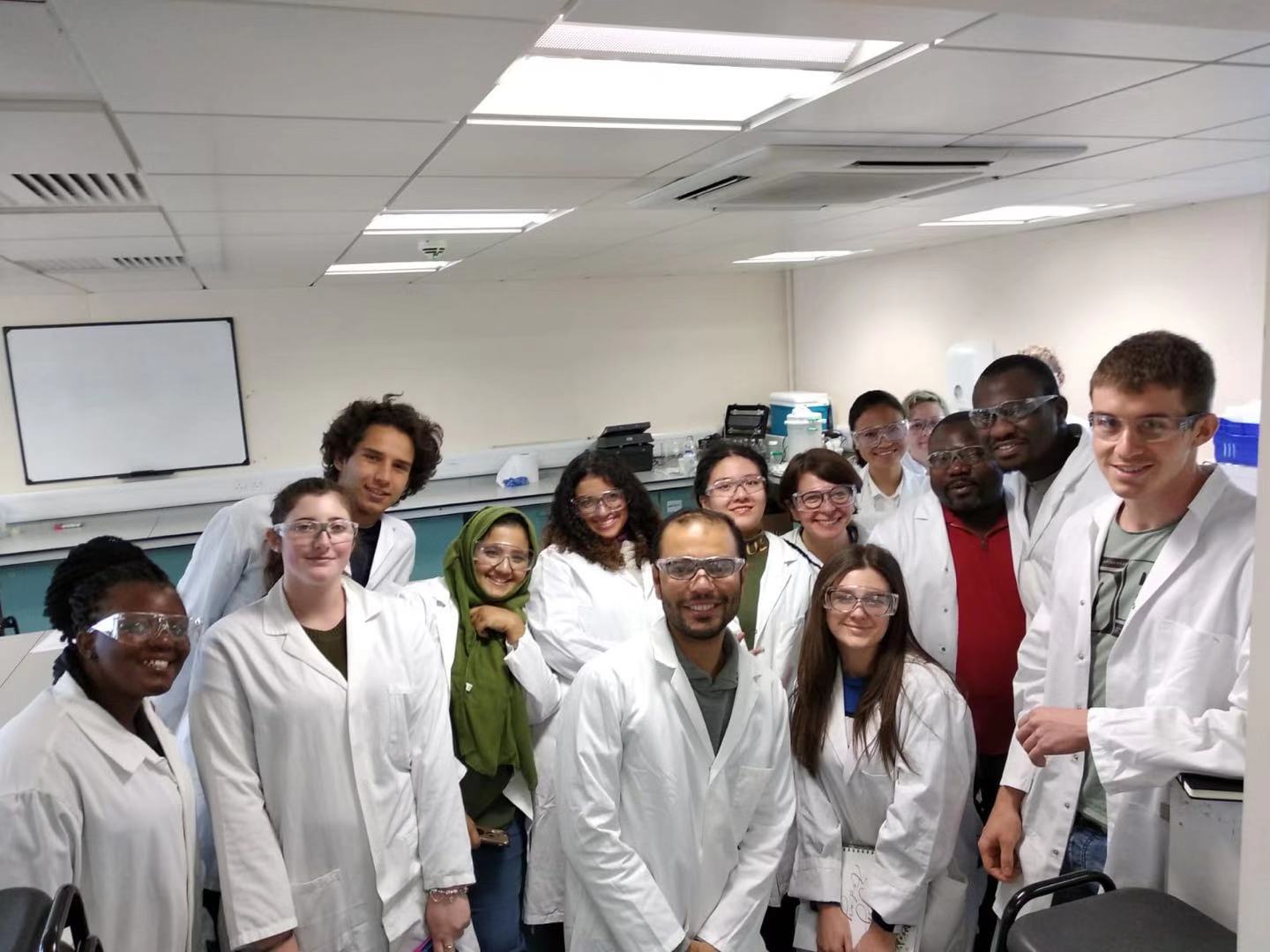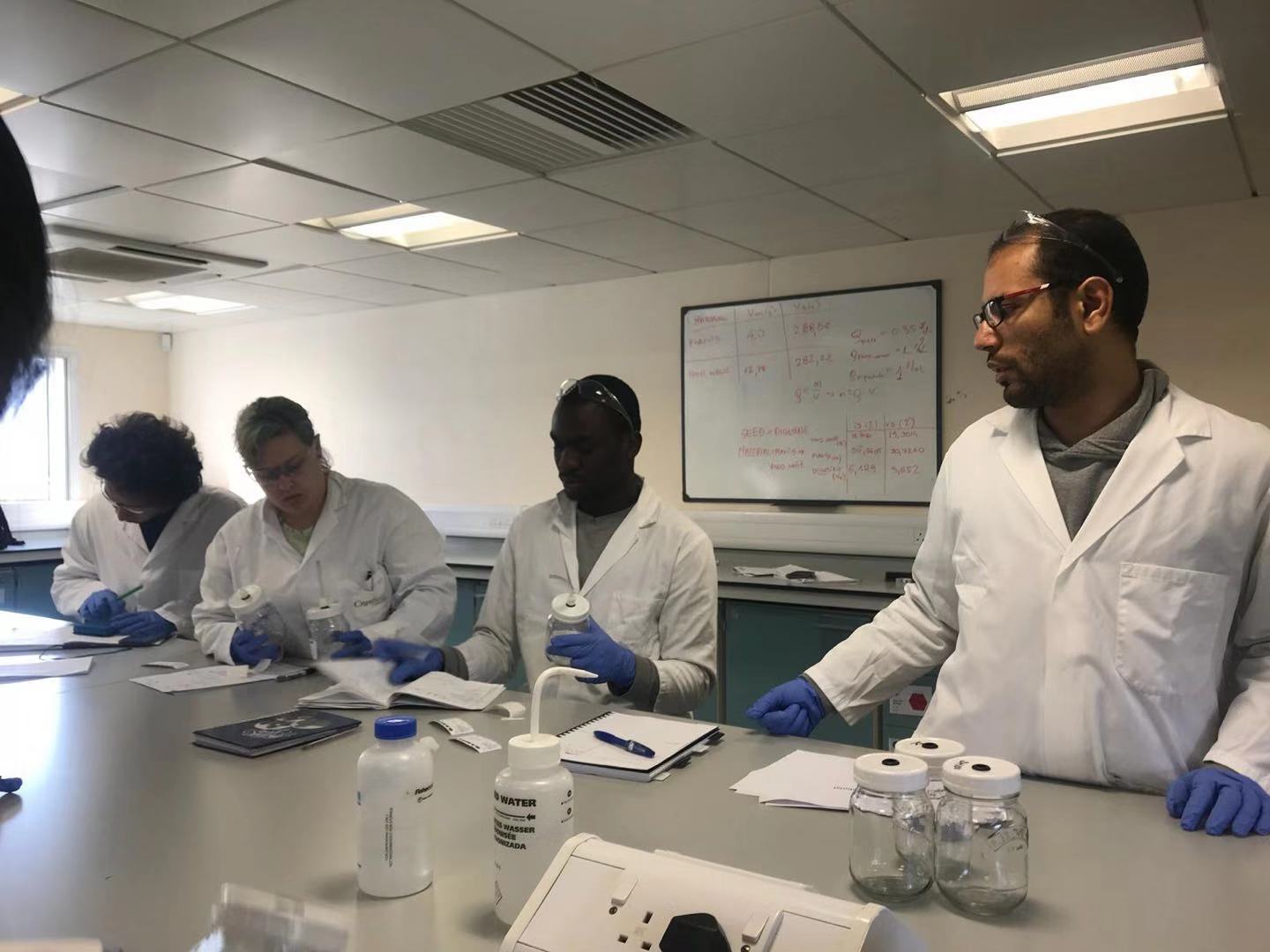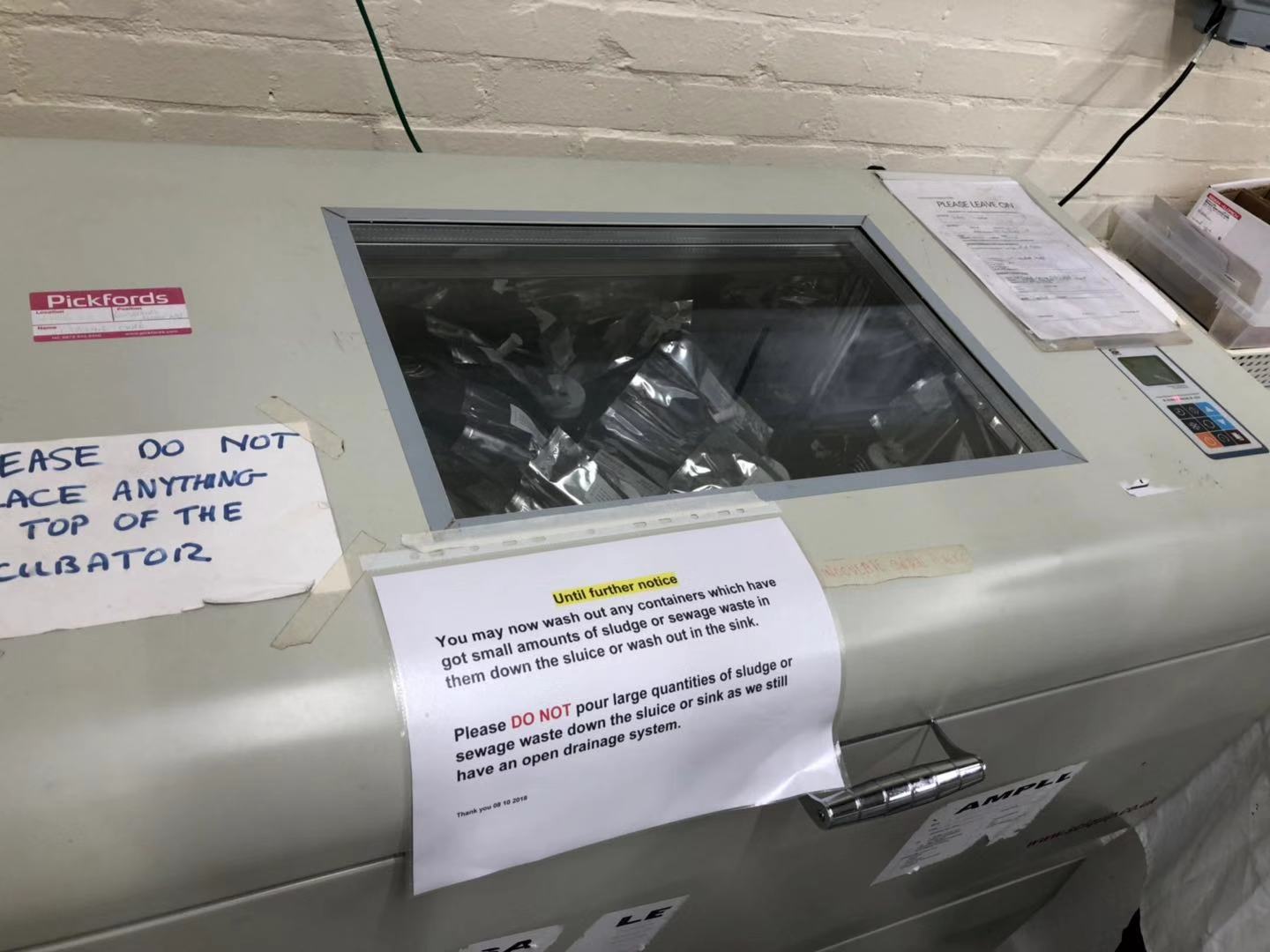The first week of circular waste management
29/11/2018

From 22 Oct, we started a new module, circular waste management: recycle, recover, and disposal, which is the second module in the Environmental Engineering MSc. This is a module which took four weeks. In the first part, in order to understand biorefinery better, the experiment to measure biogas from collected material impressed me a lot.
During my undergraduate course of environmental engineering in China, I experienced a lot in a lab, such as some experiments related to chemical analysis. However, I have never worn big goggles that can cover my glasses. This made me feel like a scientist!
The first part of the experiment is testing the total solids (TS) and volatile solids (VS) of the waste. We worked as two groups to weigh two different types of waste. The group I was in was in charge of plants. The material is a mixture of grass, leaves, and some other residues from plants. So it’s not like powder or liquid, it takes more room for the same weight. We weighed it carefully in order to get the most precise number.
Then we did a calculating exercise to find out the TS and VS of different materials and how much of the materials we needed for the next step. From this stage, we created a new group to calculate the ability to produce biogas by different materials. Using wet weight and dry weight, we got the TS and VS. Considering the ratio of seed and material, we knew we needed 17.80g material and because we are supposed to compare the difference between food waste with fat and without fat, the sample included food waste 15.80g and peanut butter 2.00g.

Calculating is not easy. Discussing with partners can improve accuracy.
The weighing process impressed me a lot. It was difficult to control the amount of material you added to the scale and this is the time to work as a team. Your team mates felt in the same way as you. When adding the material into the bottle, we all felt nervous together but we kept encouraging each other, saying “come on” or “wait, wait”. The atmosphere was really happy.
After weighing and preparing the bottles ready for the test, we went to the lab to see the facility collecting and testing the biogas.
There is something to remember in a lab. Firstly, safety is always most important. Wear lab coats, goggles, and gloves all the time and wash your hands before leaving. Secondly, keep the lab tidy. Many people work in the same lab, and you don’t know when and who will come and use the machine you have used. They don’t what you have done in the lab and if there is something toxic, so you need to clean up properly after yourself; so cleaning is not just for tidiness, but also for others safety.

Glass collected into bags in machine
Categories & Tags:
Leave a comment on this post:
You might also like…
Introducing… Bloomberg Trade Flows
Are you interested in world trade flows? Would it be useful to know which nations are your country's major trading partners? If so, the Bloomberg terminal has a rather nifty function where you can view ...
Cranfield alumni voyage to the International Space Station
Seeing our alumni reach the International Space Station (ISS) has a ripple effect that extends far beyond the space sector. For school students questioning whether science is “for them”, for undergraduates weighing their next ...
From classroom to cockpit: What’s next after Cranfield
The Air Transport Management MSc isn’t just about learning theory — it’s about preparing for a career in the aviation industry. Adit shares his dream job, insights from classmates, and advice for prospective students. ...
Setting up a shared group folder in a reference manager
Many of our students are now busy working on their group projects. One easy way to share references amongst a group is to set up group folders in a reference manager like Mendeley or Zotero. ...
Company codes – CUSIP, SEDOL, ISIN…. What do they mean and how can you use them in our Library resources?
As you use our many finance resources, you will probably notice unique company identifiers which may be codes or symbols. It is worth spending some time getting to know what these are and which resources ...
Supporting careers in defence through specialist education
As a materials engineer by background, I have always been drawn to fields where technical expertise directly shapes real‑world outcomes. Few sectors exemplify this better than defence. Engineering careers in defence sit at the ...






